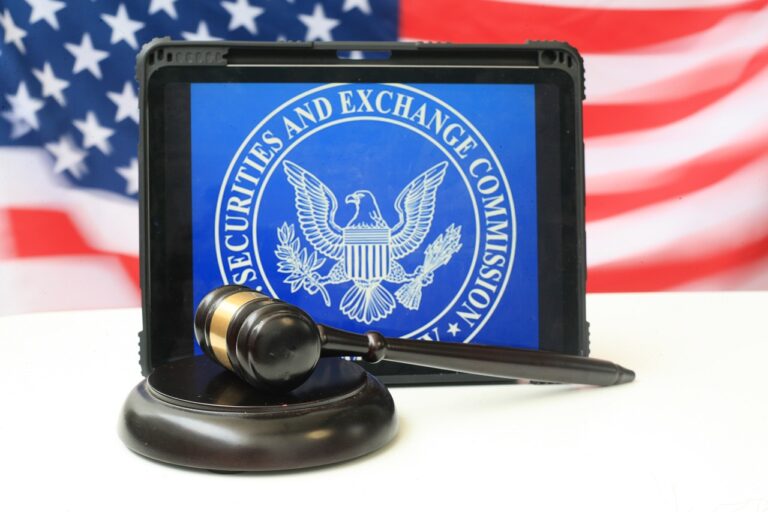Introduction
In a thought-provoking piece for InsideSources, Professor J.W. Verret from George Mason University scrutinizes the U.S. Securities and Exchange Commission’s (SEC) current regulatory approach towards the cryptocurrency industry. He particularly focuses on the SEC’s interactions with major industry players and the implications of key legal battles, such as SEC v. Ripple.
J.W. Verret is an Associate Professor at George Mason University’s Antonin Scalia Law School. He specializes in corporate and securities law, with a focus on financial regulation, corporate governance, and banking law. Verret is known for his expertise in these areas and has often been involved in public policy discussions related to financial regulation.
In addition to his academic role, J.W. Verret has been actively engaged in various advisory and consultative capacities. He has testified before Congress on matters related to financial regulation and has served as an advisor or consultant to public committees and organizations dealing with financial policy. Verret’s work often intersects with current events and policy debates in the financial sector, making him a recognized figure in discussions about financial regulation and corporate governance.
SEC’s Missteps and the Ripple Case
Verret opens by highlighting the SEC’s problematic regulatory tactics, which he perceives as overly aggressive and misdirected. He criticizes the SEC for its close ties with controversial figures like Sam Bankman-Fried, while simultaneously taking a hard line against legitimate crypto innovators. Verret argues that this approach has not only stifled innovation but also facilitated significant consumer losses and fraud, as seen in the FTX debacle.
The Ripple Roadmap: A Legal Analysis
The Ripple lawsuit, according to Verret, serves as a critical case study. He commends Judge Analisa Torres of the Southern District of New York for her nuanced understanding of cryptocurrency in her legal analysis. Verret sees her decision as a potential roadmap for other crypto companies navigating the complex terrain of securities law. He explains how Judge Torres applied the longstanding Howey test to the unique context of digital assets, particularly focusing on the facts and circumstances of cryptocurrency offers and sales.
SEC’s Overreach and the Howey Test
Verret points out the SEC’s attempt to stretch the Howey test beyond its intended scope. The SEC argued that XRP tokens were inherently “digital asset securities,” a stance that Verret criticizes for ignoring the specific facts and circumstances of each transaction. He applauds Judge Torres for reaffirming the importance of these details in her analysis, particularly in the context of blind bid/ask transactions on crypto exchanges.
Implications for Token Distributions
Verret suggests that the Ripple case provides clarity on how token distributions can be legally structured without being classified as securities. He acknowledges SEC Chairman Gary Gensler’s view of the SEC’s broad authority under the Howey test but argues that the Ripple decision sets boundaries on this authority.
Adapting SEC Rules for Crypto Assets
Drawing parallels with past adaptations in SEC rules for various financial instruments, Verret advocates for similar flexibility in regulating crypto assets. He sees the Ripple case as an opportunity for the SEC to develop rules that address the unique characteristics of crypto assets, supporting innovation while ensuring market integrity.
The Future of Crypto Regulation in the U.S.
Verret concludes by emphasizing the need for a regulatory framework that is both precise and adaptive to the nuances of different crypto assets and their trading mechanisms. He views the Ripple case as a lens to reevaluate regulatory roles in the digital age, advocating for an approach that fosters innovation and positions the U.S. as a leader in the crypto space.
Featured Image via Pixabay









